Managing your own property may seem like an ideal situation when first starting out. You will save money on real-estate fees from a property management company and be able to directly manage your units and interact with your tenants. This may seem like a win-win scenario. But, it is important to know that DIY property management can hold considerable risks. Whether you are considering residential or commercial property management, investors should first consider these pitfalls common to DIY property management before deciding whether or not to hire a real property management company.
Inadequate Tenant Screening
Failing to screen tenants properly can lead to costly problems down the road. Often, private landlords are not equipped with the tools or expertise to screen applicants thoroughly. They instead rely on limited information and intuition. Landlords may not have access to an applicant’s past rental history (available to property management companies through an industry database). Due to this they may not be able to conduct adequate background checks. Failing to check all of these screening criteria can mean renting to a tenant who can end up costing valuable time and money. A property management company can carry out all of these checks on tenants. They can look into their financial, personal and work histories to find the best tenant for your vacancy.
Not Understanding Legal Rights and Responsibilities
A landlord should be up to date on both their legal rights and responsibilities, as well as those of their tenants. These rights cover a broad spectrum of obligations, from security and repairs to eviction and rent increases. As a landlord, you will need to be sure all leasing documents are current and compliant with the law, as well as ensure that both parties are following the rental agreement. There is a complicated and fluid system of laws surrounding landlord/tenant relationships. And, not understanding these laws may lead to a breach of law (from either party) with costly mistakes.
Failing to Collect Security Bonds
A bond is a security deposit which the landlord holds in the event a tenant defaults on their rental obligations or causes property damage. Many private landlords fail to collect this bond, which is an essential part of the landlord/tenant agreement. This leaves them no recourse at the end of a bad tenancy. This bond ensures some degree of compensation and coverage of your financial losses, should it be required.
Failing to Conduct Regular Inspections
Inspections are essential to ensure tenants are both compliant with leasing agreements and happy as well. Inspections are also set out by law in each state. And, failing to implement regular checks may lead to legal action and/or penalties. Many private landlords fail to conduct regular inspections, either from lack of time and organization or because they want to avoid confrontations with tenants or maintenance costs. There are many reasons landlords fail at regular inspection. But, the risks can be costly. Regular inspections give you both the peace of mind that your property is in good condition and that tenants are following the rules.
Professional Property Management
Engaging the services of a professional and reputable property management company can reduce your risks substantially as a property investor. They will ensure the tenants in your units are properly screened. They will also take care of issues like tenant disputes, delinquent rent payments and maintenance problems. All these things can save you time, stress and money. For those thinking about cutting out the middleman to save money, take into consideration these common risks to determine whether DIY property management really will save you money in the end.

